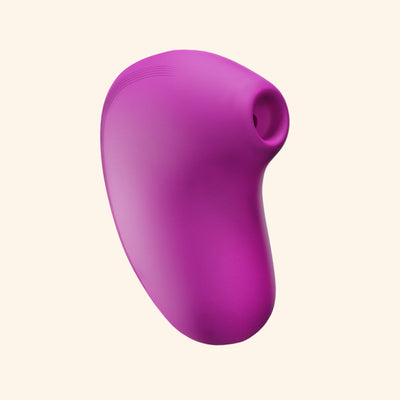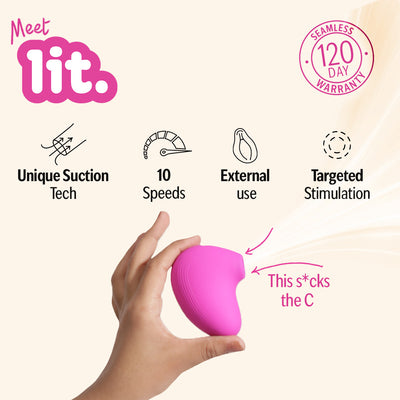Your cart is currently empty

Your bleeding time is just one part of something much bigger going on in your body every month. Behind the scenes, there's a full hormonal symphony playing out—a cycle that repeats roughly every 28 days. This shapes not just your physical health, but your mood, energy levels, and even how social or focused you feel.

Knowing what’s happening in each phase of your cycle can be a game-changer. It gives you insight into why you feel a certain way at different times of the month—and maybe helps you give yourself more compassion and support when you need it. Plus, once you understand it, you can ‘hack’ it to be at your optimal self—self-productivity-wise.
So, What Does a Typical Cycle Even Look Like?
Most menstrual cycles run between 21 to 35 days, though 28 is often considered the “average.” Day 1 is the day your period starts, and the cycle ends the day before your next one begins. Everyone’s cycle can be a little different, but most follow a similar hormonal pattern.

Here’s how it breaks down:
1. Menstrual Phase (Days 1 to 5-ish)
This is your actual period—the part we tend to think of first. Your uterus is shedding its lining from the previous cycle, and that’s what causes the bleeding, the clots, and the cramps.
How you might feel: Sluggish, crampy, nauseous, bloated, or just ‘meh’. Who likes bleeding out of their vagina anyway? Many people feel more tired than usual and aren’t in the mood to socialize much. It’s a good time to rest or go easy if your schedule allows.
Why: Estrogen and progesterone are both low right now, and that hormonal dip can leave you feeling physically and emotionally drained. Your uterus is contracting and relaxing at intervals so that it can push all the endometrial lining out. Some people describe the pain as similar to the beginning stages of labour. Fun, right?
2. Follicular Phase (Days 1 to 13)
This starts at the same time as your period but continues after the bleeding stops. Your brain signals the ovaries to prepare some eggs for release, and your estrogen starts to climb.
How you might feel: Slowly but surely, your energy comes back. You might feel sharper, more focused, or a little more playful and optimistic.
Why: Rising estrogen tends to brighten your mood and sharpen mental clarity. Some people also feel more motivated and social during this stretch.

3. Ovulation (Around Day 14)
This is the big moment—one egg gets released from either ovary and starts its journey down the fallopian tube.
How you might feel: On your A-game. You are feeling more attractive, confident, and outgoing. Your libido might also get a noticeable boost.

Why: Estrogen peaks here, and another hormone called LH (luteinizing hormone) surges to make ovulation happen. Nature is quietly nudging you to be out in the world and feeling good, because this is you at your most fertile. Your body wants you to have sex and get pregnant.
4. Luteal Phase (Days 15 to 28)
After ovulation, progesterone steps in to prepare your body in case there’s a pregnancy. If there isn’t, hormone levels start to fall again as your body gets ready to start the next cycle.

How you might feel: This is where PMS can show up—bloating, mood swings, cravings, or trouble sleeping. Some people feel really anxious or down without knowing why.
Why: Hormonal drops—especially progesterone crashing—can mess with your serotonin levels and energy. Your body is winding down, and it shows.
When You Might Feel Your Best
That window around ovulation and the first part of the luteal phase is when many people feel most “on.” It’s a good time to plan big tasks, go on dates, or even push yourself a bit more at the gym or work if you feel up to it.
And When It’s Totally Okay to Slow Down
During your period and the last few days before it starts, your body may ask for more rest—and that’s not you being lazy or emotional. It’s your system doing a full reboot. If you can plan lighter days around these phases, go for it. Resting when you need it is a sign of wisdom, not weakness.

Final Thoughts
Your cycle isn’t just about periods. It’s a full-body experience that shifts how you think, feel, and function. When you understand what’s going on inside you, you can make choices that feel more aligned—whether that means showing up strong, pulling back, or just being a little gentler with yourself.
Also, check out our blog on Can older women have sex and Do Periods Actually Sync Up?
FAQs on the Menstrual Cycle
What’s the menstrual cycle?
It’s a monthly rhythm of hormonal changes that preps your body for pregnancy. If that doesn’t happen, the cycle resets with your period.
How long is it supposed to be?
Anywhere between 21 to 35 days is considered normal, but 28 is a common average.
What are the different phases again?
Menstrual (period), Follicular (build-up), Ovulation (egg release), and Luteal (winding down).
Why do I feel like a different person each week?
Hormones are powerful. When they rise and fall, they take your mood, energy, and even focus along for the ride.
When should I rest?
Try giving yourself a break during your period and those few moody days leading up to it. That’s when your body’s working the hardest behind the scenes.
About the author:
Zee (she/her) is passionate about helping people navigate love, relationships, and sex with honesty and confidence. Through playful yet practical insights, Zee aims to break taboos and make intimacy conversations more open and relatable.










